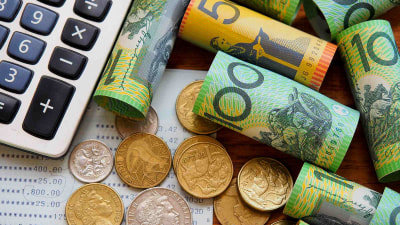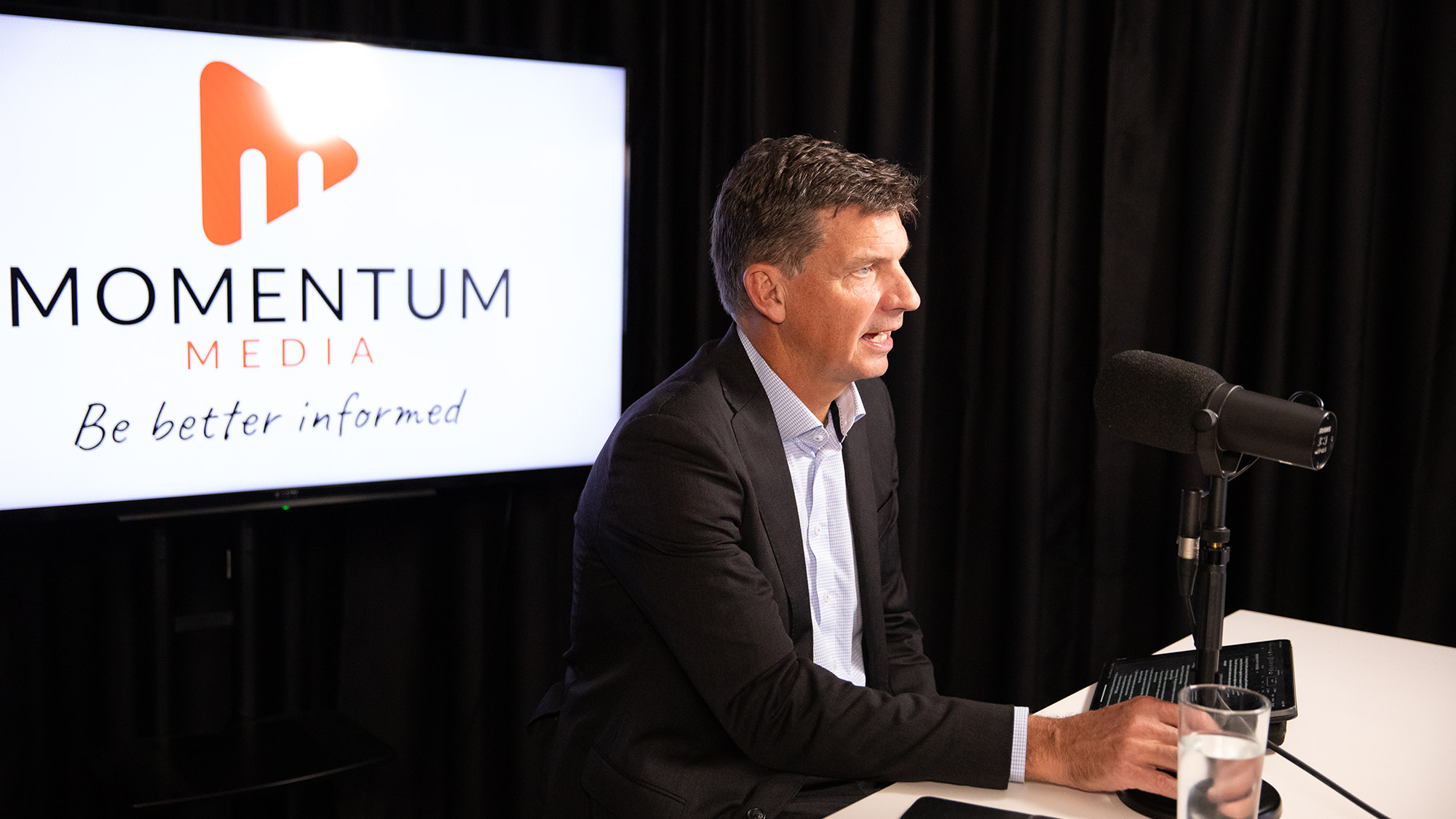Australian sharemarket year in review
The decline in financials markets saw investors faced with an environment that many had never experienced. By the end of the tumultuous year, the Australian market had lost almost half its value.
Shaw Stockbroking analyst Luke Maffei said the year saw the end of a near 20-year credit cycle that began in the early 1990's.
"The market refocused on fundamentals, namely balance sheets and conservative gearing, whereas in previous years many had glossed over the simple things that make a company what it is," he said.
"The market has taught each participant that a good balance sheet must always be maintained irrespective of the economic times."
As at 17 December, the All Ords was down more than 45 per cent for the year at 3,515 points, while the ASX/200 had tumbled around 43 per cent to 3570.6.
Due to its defensive nature, Healthcare was the best performing sector despite falling 19.3 per cent.
Shaw Stockbroking healthcare and biotechnology analyst Matthijs Smith said the sector had certainly outperformed the market.
"People's demand for healthcare products is independent of market cycles," he said.
"As a result we haven't seen the same types of earnings and profit pressures on these companies going forward, nor do we expect to."
However, Mr Smith noted that the biggest earning companies CSL, Cochlear, ResMed and Sonic Healthcare, all of which have significant overseas earnings, tumbled in July as the US dollar weakened against the Australian dollar.
Looking at the Energy and Utilities, which fell 19.7 per cent and 37.9 per cent respectively, Mr Maffei said the sectors could be divided into companies that have cash and those that don't.
"Companies like AGL Energy, Origin, Santos, and to a lesser degree Woodside, OneSteel and Bluescope have had minimal debt refinancing needs, though others like ConnectEast, B&B Infrastructure, Asciano and Nexus may still have funding issues despite having reasonable assets," he said.
Mr Maffei said Origin, Santo and Queensland Gas outperformed the energy sector largely due to the revaluation of CSM reserves.
Origin Energy was the second best performer of the market, up around 90 per cent, while Linc Energy rallied more than 160 per cent for the year grab top spot.
Shaw senior advisor Jamie Spiteri said Origin and the ConocoPhillips deal had been a significant contributor to the outperformance of Origin's share price.
He added that British Gas' takeover of Queensland Gas and the significant upward revaluation of coal seam gas assets by major world players helped the sector's performance.
"The energy sector outperformed despite a significant fall in oil price throughout the year of over US$100 a barrel as we saw it reach highs of US$147 and in recent times slipping to US$47 a barrel," he said.
"This has been offset by the Australian dollar slipping from highs of 98c to a low of 60c."
However, Mr Spiteri said the sectors that had the most significant influence were the Financials and Materials, which fell around 50 per cent and 42 per cent respectively.
"The financials have had to confront the considerable reshaping of the global economic environment keeping in mind that a significant level of funding is required from large capital markets out of the US and Europe," he said.
He noted that banking models had to absorb big writedowns and rising bad debt provisions, which had seen a significant amount of capital repatriated back to the US.
He argued that this in turn led to major changes of currency evaluations during the year.
"This has seen the A$ fall 30 per cent as funds out of Australia have been repatriated to the US in desperate need to attend to the significant impact that the global financial crisis has had across the world but in particular the US and Europe," he said.
He said that had an impact on the local banking models where difficulty in obtaining funding contracted business activity.
The year's worst performer was Babcock & Brown, having dropped a massive 99 per cent. Macquarie Group fell 64 per cent.
The sector also underwent significant consolidation during the year. Westpac took over St George, while Commonweath Bank's acquisition of BankWest was expected to be completed by the end of the year. NAB, CBA, and ANZ all ended around 50 per cent lower, while Westpac outperformed its peers despite falling 43 per cent.
The credit crisis also took its toll on Property Trusts with the sector dropping 47 per cent. As liquidity evaporated, property trusts with large amounts of debt funding were stung.
"It has been the corporate structures with high levels of debt that have been punished in the sharemarket throughout 2008," Mr Spiteri said.
Valad Property Trust ended the year down 96 per cent, while Centro Properties and Centro Retail were lucky to survive the year albeit 99 per cent lighter. The companies scraped by thanks to a last minute $6 billion debt deadline extension.
The worst performing sector of the year was Consumer Discretionary, which fell around 60 per cent.
Mr Spiteri said retail sales had a significant shift in the 12 months, with buoyant activity in the first half and noticeable declines in the latter half of the year.
"As retailers have had to accommodate the increasing slowdown and also the economic pressures being applied across the industry that their margins have significant increased and currency has played its part in that too," he said.
Harvey Norman sank 64 per cent for the year, JB Hi-Fi lost around 43 per cent and David Jones lost 47 per cent.
In the media space, Seven Network chairman Kerry Stokes moved one step closer to effective control of West Australian Newspapers when he was elected chairman of the board.
Seven Network dropped 50 per cent for the year and West Australian Newspapers ended 60 per cent lower.
Meanwhile, there was also a shake-up at Fairfax where David Kirk quit his post as CEO. Fairfax shares were down 67 per cent year to date.
Materials and Resources dropped 42 per cent for the year.
Shaw senior resource analyst Ted Leschke said the average share price in the sector was down between 70 per cent and 90 per cent from the peaks seen in November 2007 with single mine/single commodity stocks the hardest hit.
He pointed to BHP Billiton as a notable exception but even the giant's shares slid 25 per cent year-on-year.
Mr Leschke said after last year's optimism about record iron ore and coal prices, the market was now mulling potential price cuts of between 30 per cent and 50 per cent for bulk commodities, and spot metals prices.
BHP withdraw its takeover offer for Rio Tinto, which had significant negative impact on Rio's share price.
Industrials slipped 52 per cent for the year. Leighton Holdings extended its reach across the Middle East signing several key deals.
Telecommunications fell 27 per cent for the year with Telstra down 24 per cent. The stock dropped off significantly in December, falling 15 per cent.
Mr Spiteri said Telstra was impacted by the political dogfight that it now confronts with the Australian government over the alternate plans for the national broadband network.
Consumer Staples fell 33 per cent for the year. Woolworths lost 24 per cent, while Wesfarmers tumbled 47 per cent. In November, Lion Nathan launched a $7.6 billion takeover offer for Coca-Cola Amatil, which later go dropped.
Coca-Cola Amatil and Lion Nathan fell 11 per cent and almost 20 per cent.
Looking to next year, Mr Maffei said the market might recover some losses perhaps in the second half of 2009, though it would take some time for private balance sheets to recoup losses.
He noted that the increase in private savings was a big positive.
"Next year we may see further competition for funds as western governments, especially the US, will require substantial funding, thus governments will be competing with the private sector for funds," he said.
"The Australian market will rally when capital raisings have ended."
The Overnight MarketWatch report is provided by SHAW Stockbroking's egoli - simple but informative market news for the everyday investor.
egoli news: A view of the Australian market, from your perspective, as it happens. For more information go to http://www.egoli.com.au/egoli/egolihome.asp
Recommended for you
A new advice licensee set up by former WT Financial advisers has helped financial adviser numbers return above the 15,600 mark this week.
Two separate studies have discovered the majority of advised clients prefer to pay a flat fee for financial advice, while unearthing how much they are willing to pay for the service.
Financial services software Iress and digital community platform Ensombl have partnered up to strengthen the technology skills of financial advisers and paraplanners through a new initiative.
The corporate regulator has commenced “urgent” Federal Court proceedings against a Brisbane-based financial adviser in connection to financial advice and activities on client trading accounts.














